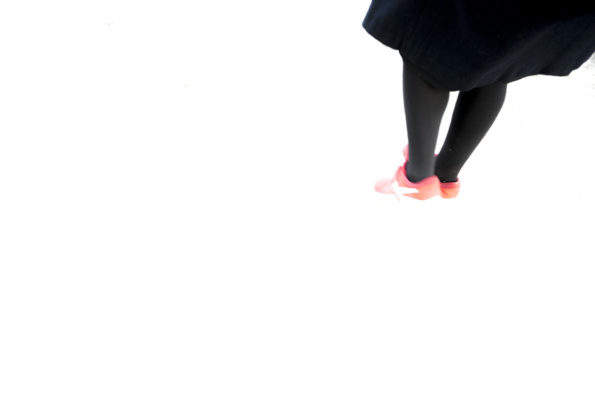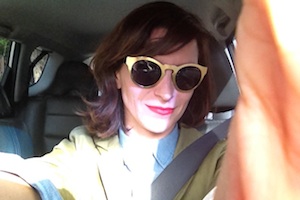Search
To search for an exact match, type the word or phrase you want in quotation marks.
A*DESK has been offering since 2002 contents about criticism and contemporary art. A*DESK has become consolidated thanks to all those who have believed in the project, all those who have followed us, debating, participating and collaborating. Many people have collaborated with A*DESK, and continue to do so. Their efforts, knowledge and belief in the project are what make it grow internationally. At A*DESK we have also generated work for over one hundred professionals in culture, from small collaborations with reviews and classes, to more prolonged and intense collaborations.
At A*DESK we believe in the need for free and universal access to culture and knowledge. We want to carry on being independent, remaining open to more ideas and opinions. If you believe in A*DESK, we need your backing to be able to continue. You can now participate in the project by supporting it. You can choose how much you want to contribute to the project.
You can decide how much you want to bring to the project.

WHAT WE IMAGINED YESTERDAY, TODAY CAN BE TOTALLY TRUE AND TOTALLY FALSE. The proposal was launched in April. At that time the challenge we set ourselves was how to talk about a time that was to come at a time when any projection seemed to be overtaken at such a speed that it almost did not crystallize. It seemed as if the antitheses were posed before the theses, and the syntheses were impossible… all of a sudden, life was “more than real than life itself”. Would fiction then be obsolete?
The fiction we are considering has an indeterminate field, it should be able to revolve around any theme, but at the same time it arises from an intention that, without being set in stone, has a direction, that of reflecting on our ways of life. That is why, more than individual speculations, more than a place of evasion from reality, it was posed as if we were placing a lens on uncertainty, which responds to normality, an exercise to rethink… the theses and their antitheses, the actions or their absences that want to be a free practice, a conscious gesture – not a tool, since it goes beyond utilitarism – that allows us a space and a time to imagine the collective being.
These plausible alternatives (why not?) have somehow been woven and interwoven, they have been conjugated – which implies more than a relationship of data and information, and puts into play an aesthetic sensibility and emotional sensitivity[1],, different from a mere connection – and they have commented on each other in a four-week journey. Thus, these fictions articulate a matrix, a pattern that escapes a structure of already (always) outdated, patterned possibilities.
“…destiny cannot be a matter exclusive to this physical universe; it has to involve one or more of the other branches of a multiverse, of alam al-khayal (the Imaginal World), or the fiction that does not crumble “two days later,” or the realm of the dance of movement, body, space, altered time, silence and music, etc. In some cases, the other different body with which one is going to collaborate already exists, in the form of the subtle body in the Imaginal World, or the spectral body in the undead realm… in other cases, one has to produce it, for example, as a character in a fiction that does not crumble “two days later”, or, if one is a dancer, as a subtle version in the realm of the dance of altered movements, body, space, time, silence and music”.[2]
Andrés Carretero walks through the urban space -the stage of the human and civilized par excellence- to rethink its use in the hypothesis of its emptiness, and what kind of production or new productivity can be established in its denial of past dynamics or in its redefinition of new ones.
Julia Ramírez Blanco tells us. And she tells us twice a fable that literally pierces structures to deal with the concept of community, imagining the bodies that form it, the places they inhabit and the monsters on their margins.
Lorenzo Sandoval gives form, as a kind of decalogue, to a series of intuitions, in a political and poetic enunciation to raise, point by point, divergent possibilities of the institutional.
As a last reflection, the one made from the field of artistic research itself (if the others are not, or if this can be reduced), Esther Gatón proposes a nuclear vision in which the concept of machine / trap is diluted in an expansive movement from the exhibition device, the networks of a field of fun / alienation, to the black dwarf that one day the sun will become.
In these four weeks the buildings have been diluted, the leaky houses were subjected to structural control, the sun could have exploded, our connectivity could have been compromised. But also communities open up, institutions can be reinvented, traps are devices that embrace and cities are rethought, from a political condition that is based on a new radical imagination. These are the theses and antitheses that in four tones, and diverse tonalities, speak to us of that fiction to come.
[1] Franco “Bifo” Berardi, Fenomenología del fin: sensibilidad y mutación conectiva, Caja Negra, Buenos Aires, 2017.
[2] Jalal Toufic, What Was I Thinking?, Stenberg Press, Berlin, 2017.
(Featured image + Author’s note: This image has been chosen because it was one of those on my computer desktop on April 11, 2020, when the authors were beginning to talk about the possibilities of fiction. It was made in Italy a year and a few months before. Although in its reading the time and space in which it was taken remain undefined. It is open to the imagination any possibility of what could be happening or what could be moving forward).

Marta Ramos-Yzquierdo is used to change and adaptation. That is why she has has worked in the most diverse fields within the art world and the cultural management. She has lived in Paris, Granada, Madrid, Santiago de Chile, a lot of years in Sao Paulo and now in Barcelona. She talks a lot with artists and other beings to seek for many questions, especially about power structures, perception and ways of acting, feeling and living.
"A desk is a dangerous place from which to watch the world" (John Le Carré)